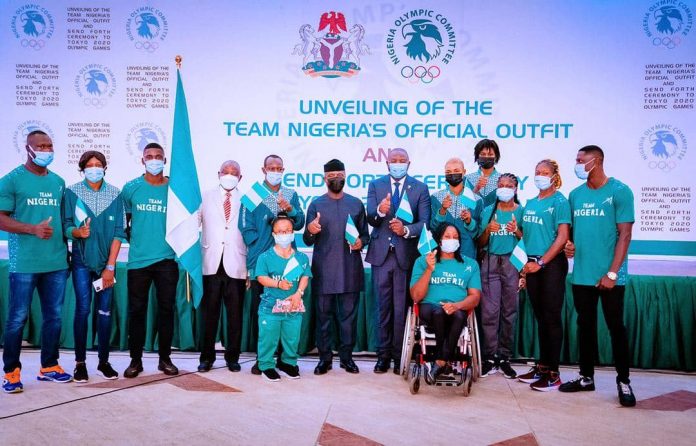Puma, the German sportswear manufacturing company, has pulled the plug on the 4-year kits sponsorship contract with the Athletics Federation of Nigeria (AFN).
The contract was signed on July 24, 2019, in Doha by the AFN board under Ibrahim Gusau.
It was expected to expire in 2022 and has been the genesis of a major crisis that the athletics body is battling to date.
A significant section of the deal stated that Puma will supply kits to all age categories to Nigeria’s athletics team for four years.
The contract also includes monetary rewards for Nigerian athletes who wear the sportswear during medal presentations at the Olympics games — with gold medalists earning $15,000, silver medalists getting 5,000 while a bronze medal will attract $3,000.
However, the contract has led to an ongoing legal battle between the sports ministry and the factional board of AFN.
In addition, Gusau, alongside Sunday Adeleye, technical director of the body, was dragged to court by the Nigeria Police Force (NPF) for the alleged diversion of over $75,000.
Consequently, the ministry failed to allow the Nigerian athletics team to don the Puma branded apparel at the ongoing Tokyo Olympics, arguing that it’s “a subject of a criminal investigation”.
Reacting to the latest development, Puma, in a letter addressed to the AFN, announced the sudden termination of the contract — about two years after it was signed.
The letter, dated August 4, added that the premature ending of the deal is due to Nigerian athletes’ inability to wear the brand at the ongoing Olympics.
“We are referring to the licensing and sponsoring agreement signed between our company and your federation,” the letter read.
“As a direct consequence of the recent developments, particularly at the Tokyo Olympic Games 2020 and pursuant to clauses 9.2 and 7.3 of the Agreement, we hereby terminate the Agreement with immediate effect.
“Puma especially declares to be discharged from any or all obligations towards all stakeholders involved and reserves all rights against these entities and individuals.”






